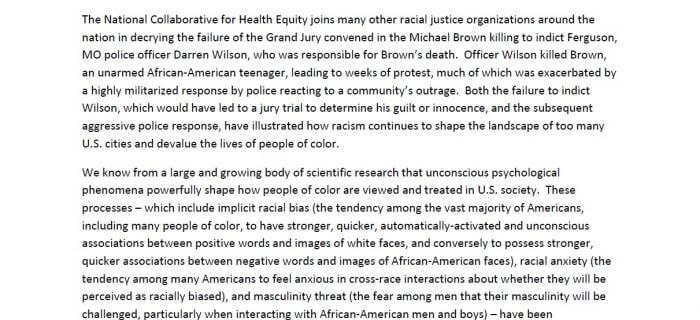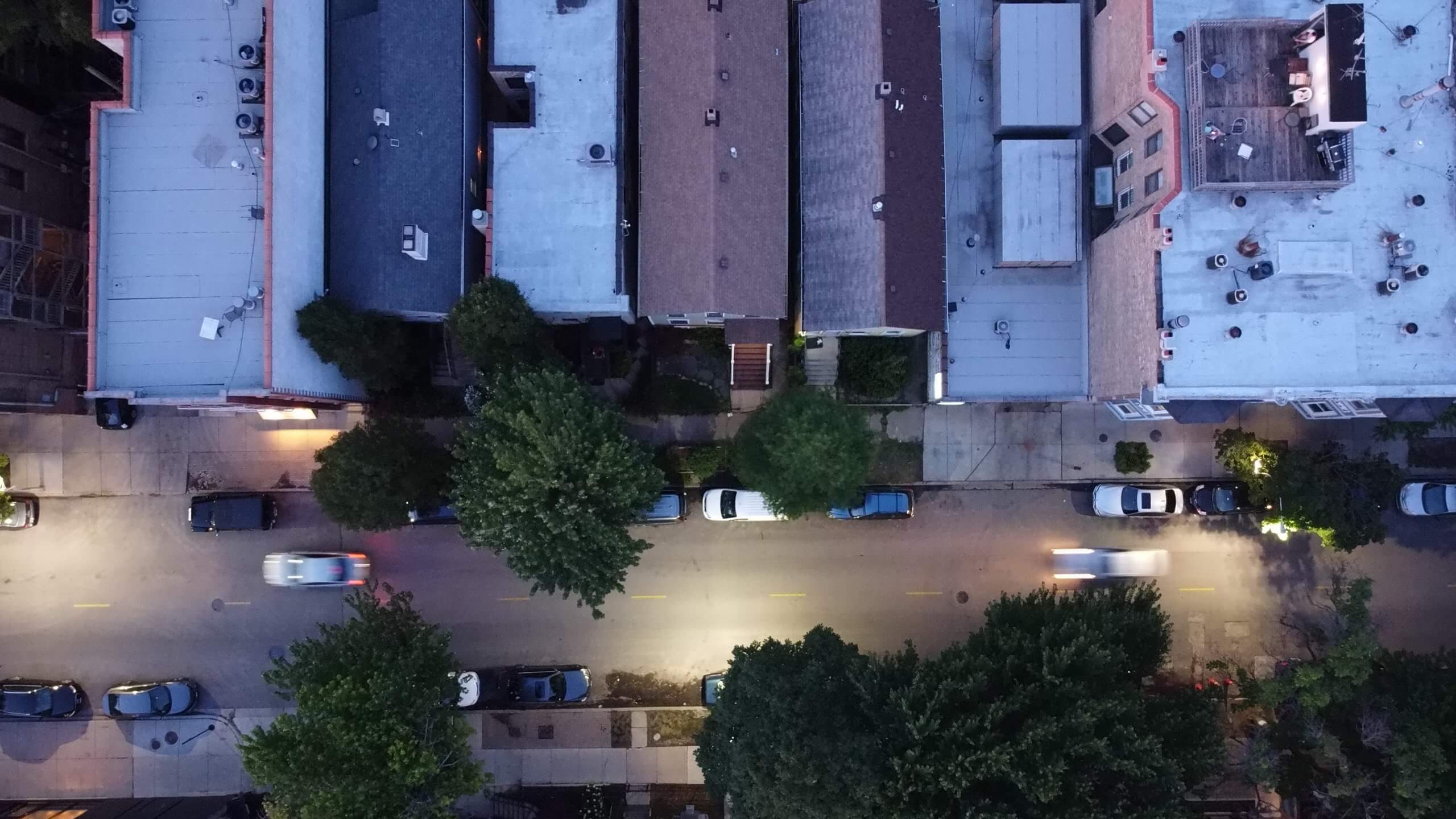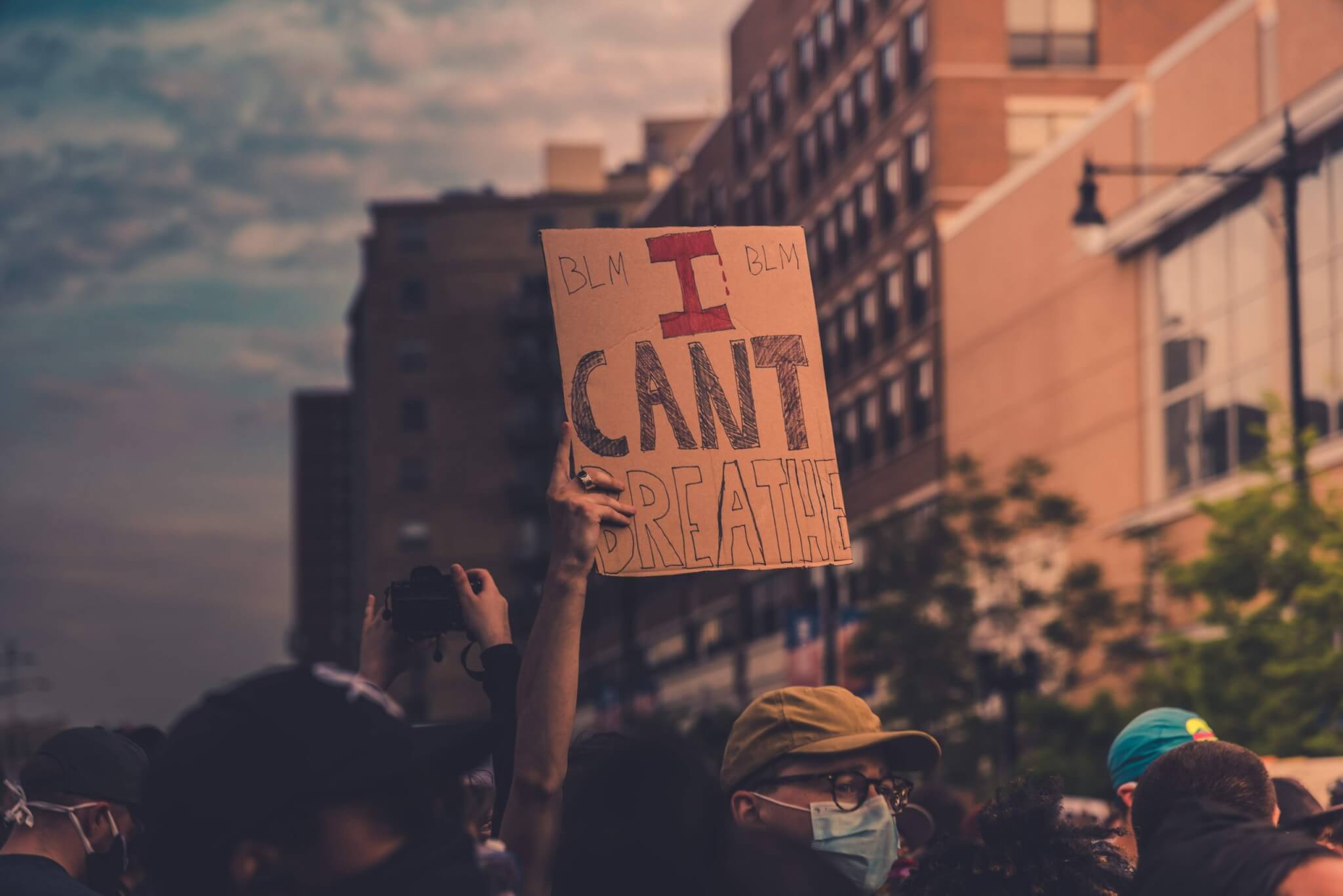Statement from the National Collaborative for Health Equity on the Grand Jury Decision Regarding the Death of Michael Brown
The National Collaborative for Health Equity joins many other racial justice organizations around the nation in decrying the failure of the Grand Jury convened in the Michael Brown killing to indict Ferguson, MO police officer Darren Wilson, who was responsible for Brown’s death. Officer Wilson killed Brown, an unarmed African-American teenager, leading to weeks of protest, much of which was exacerbated by a highly militarized response by police reacting to a community’s outrage. Both the failure to indict Wilson, which would have led to a jury trial to determine his guilt or innocence, and the subsequent aggressive police response, have illustrated how racism continues to shape the landscape of too many U.S. cities and devalue the lives of people of color.
We know from a large and growing body of scientific research that unconscious psychological phenomena powerfully shape how people of color are viewed and treated in U.S. society. These processes – which include implicit racial bias (the tendency among the vast majority of Americans, including many people of color, to have stronger, quicker, automatically-activated and unconscious associations between positive words and images of white faces, and conversely to possess stronger, quicker associations between negative words and images of African-American faces), racial anxiety (the tendency among many Americans to feel anxious in cross-race interactions about whether they will be perceived as racially biased), and masculinity threat (the fear among men that their masculinity will be challenged, particularly when interacting with African-American men and boys) – have been demonstrated to shape how people interpret and respond to cross-race interactions, even if these individuals abhor racism and express egalitarian views. In other words, Officer Wilson, like a large majority of other Americans, may have responded with violence to Michael Brown simply because he was an African-American male, and might not have responded in the same way with a white youth. A fair trial of Officer Wilson would have at least allowed prosecutors to examine whether these unconscious processes played a role in Brown’s death, despite Wilson’s racially “neutral” defense that he felt threatened by the teen.
Aggressive policing and inequitable treatment of people of color by police not only is unfair and counter to American values, it also increases risks for poor health in communities of color – and not just among those directly harmed by police actions. It can lead to distrust of police and an unwillingness to cooperate with police investigations. It also contributes to high levels of stress among those innocent persons treated with suspicion by police, and erodes a community’s sense of security.
The National Collaborative calls for police departments around the country to avoid future tragedies such as Brown’s death by receiving training on implicit bias and other unconscious processes, and understanding the role that they play in everyday policing decisions. We also call for news media to provide more fair and balanced reporting of news involving people of color, and to focus attention on the structural barriers at the root of so many racial inequities, whether related to policing and criminal justice, economic opportunity, health, and the like. And we call on our leaders – elected officials, clergy, business leaders, civic leaders, and others – to bravely lead a national conversation on race and racism. Evidence reveals that racism literally kills people of color. This is not only morally wrong, but it also threatens to continue to erode the fabric of American society in ways that hurt all of us.





